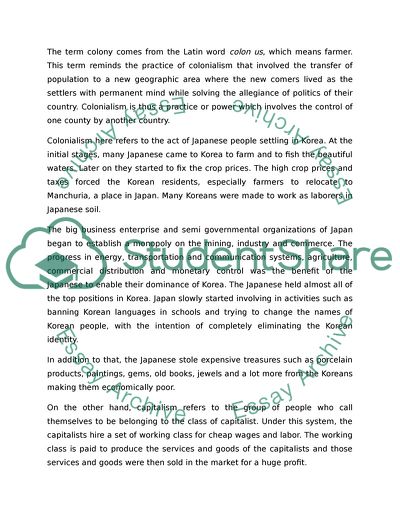Cite this document
(Korean History Assignment Example | Topics and Well Written Essays - 1500 words, n.d.)
Korean History Assignment Example | Topics and Well Written Essays - 1500 words. https://studentshare.org/history/1745364-korean-history
Korean History Assignment Example | Topics and Well Written Essays - 1500 words. https://studentshare.org/history/1745364-korean-history
(Korean History Assignment Example | Topics and Well Written Essays - 1500 Words)
Korean History Assignment Example | Topics and Well Written Essays - 1500 Words. https://studentshare.org/history/1745364-korean-history.
Korean History Assignment Example | Topics and Well Written Essays - 1500 Words. https://studentshare.org/history/1745364-korean-history.
“Korean History Assignment Example | Topics and Well Written Essays - 1500 Words”. https://studentshare.org/history/1745364-korean-history.


